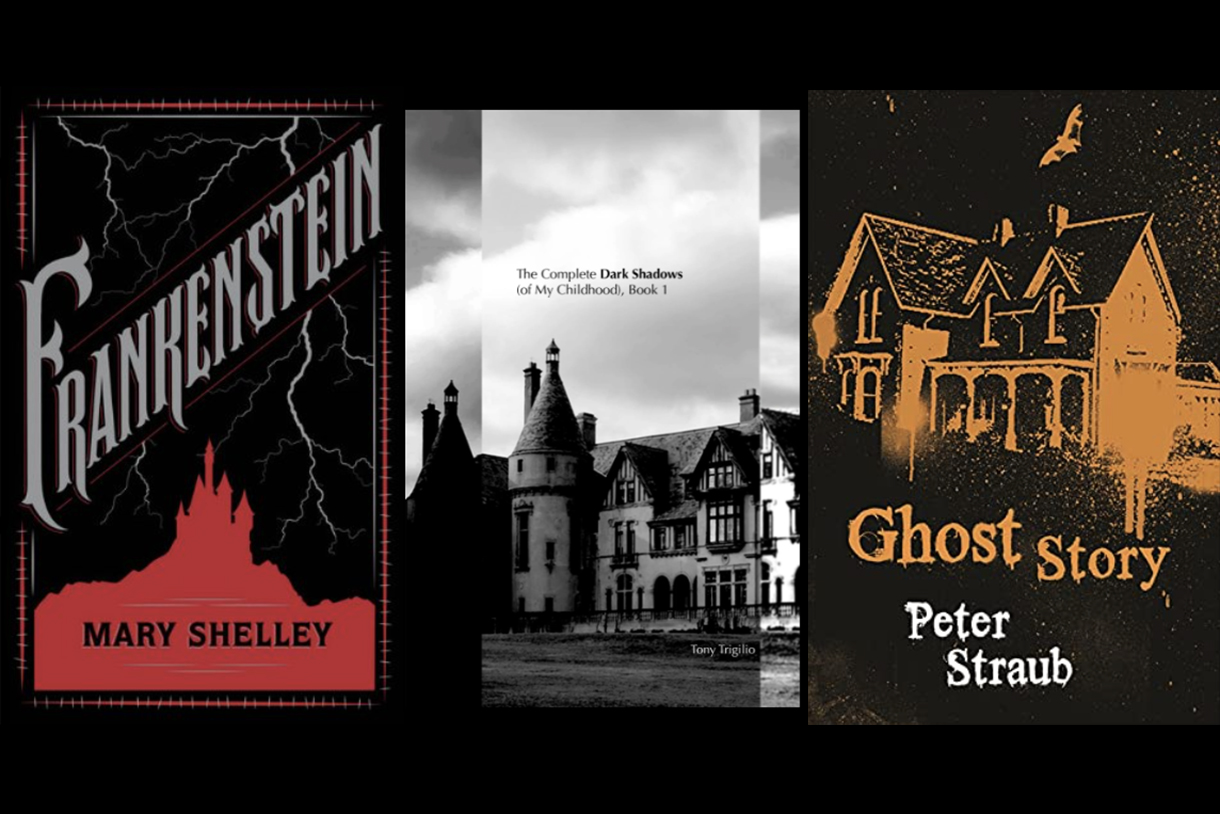Frights and Fiction: How Columbia Teaches Horror in Creative Writing

With the work of early trail-blazing authors such as Bram Stroker, Mary Shelley, and more recently Stephen King, the horror genre has carved its own path in the literary world for centuries. “Even though horror writing is sometimes dismissed as so-called ‘genre writing,’ we know at Columbia that when it’s done well, horror writing can be just as literary as any other kind of writing,” says Tony Trigilio, Professor of English and Creative Writing at Columbia College Chicago.
We asked some of our faculty about the importance of horror in Columbia’s curriculum, and for some of their frightening favorites.
Kathie Bergquist, adjunct faculty, English & Creative Writing
"I'm glad Columbia embraces genre writing such as horror; writing and reading horror stories tunes developing writers into the use of pacing, narrative tensions, and suspense, which are useful for all prose (and script) writers. It doesn't hurt that there's also a seemingly insatiable appetite for scary stories in books, movies, and television. When it comes to reading scary stuff, I love the eerie and uncanny more than slasher or shock horror.
A good haunted house story will get me every time, which is why I strongly recommended Jac Jemc's creepy novel, 'The Grip of It,' which is as much a contemporary psychological thriller as it is a classic haunted house story in the tradition of Shirley Jackson."
Richard Chwedyk, adjunct faculty, English & Creative Writing
"Horror is an important element of our education because if we know ourselves fully, we must recognize and acknowledge what we fear. I get closest to this topic in my teaching when my classes discuss something like 'Beowulf.' We may not know much about Anglo-Saxons who lived 1,500 years ago, but we know what they were afraid of—monsters, like Grendel, attacking the heart and social center of their world. In 'Frankenstein' the monster is a reflection of Victor's inner turmoil, his alienation and abandonment, manifest in the form of a creature. We shall know these people by their monsters, as they would know us by ours. Literature and the arts allow us to examine this aspect of human experience without risking (usually) being torn from limb to limb."
Devon Polderman, adjunct faculty, English & Creative Writing
"A couple of more contemporary writers who are bringing some new ideas to short story horror include Kelly Link and Maria Carmen Machado—both write outside of horror, too. Also, and I'm thinking of him because he just passed, Peter Straub's 'Ghost Story' is an excellent horror novel, published in 1979."
Polderman says Columbia's horror writing class is a popular choice among students every spring semester, as are most of the college's commercial fiction classes, such as Fantasy Writing, Young Adult Fiction, and Science Fiction Writing.
Katrina Kemble, adjunct faculty, English & Creative Writing
"One of my favorite novels to read and discuss at Columbia College is Mary Shelley’s 'Frankenstein.' Frankenstein explores feelings of loneliness, loss, grief, and fear and helps us come to understand some of these emotions within ourselves. Gothic literature offers us an opportunity to explore some of the darker emotions we may feel and allows us to connect more deeply with the human experience."
Tony Trigilio, Professor, English & Creative Writing
"I’m very happy that we give serious attention at Columbia to the horror genre. Even though horror writing is sometimes dismissed as so-called 'genre writing,' we know at Columbia that when it’s done well, horror writing can be just as literary as any other kind of writing. I’m proud that our curriculum is open-minded enough to welcome horror writing alongside all other kinds of literary writing in our creative writing workshops. Good writing is good writing—no matter what the genre. I know that not all schools approach writing this way, but I’m grateful that we do."
Trigilio is in the process of finishing book four of a multi-volume, hybrid poetry/prose experiment in autobiography based on the 1966–1971 ABC gothic soap opera, Dark Shadows. His series, published by BlazeVOX Books, is crafted into verse or literary prose, with one sentence for each of the 1,225 episodes of the show.
Brendan Riley, Associate Professor, English & Creative Writing
"Horror gives us room to tangle with the dark side of life, to ask questions about who we are, and thrill at the subversive. It also gives us crucial information about how to recognize and fend off vampires, werewolves, and zombies.
Teaching about horror at Columbia has been a treat! As we examine and discuss popular texts like zombie films, we open doors to conversations about philosophy, art, ethics, community, and life itself. We also get a bit of insight into who we might be when the undead come knocking."
Riley's five horror recommendations:
- The Boys from County Hell (Irish vampire movie with really interesting vampires)
- “The Autumnal” (horror comic about a malevolent forest spirit)
- Slaxx (low budget comedy horror movie about demonic jeans)
- “Lake of Darkness” (1920s Chicago serial killer novel w/ a hint of Lovecrafty goodness)
- [REC] (Spanish found-footage zombie movie that's pretty dang scary)
Recent News
- Columbia Holds Sixth Annual Hip-Hop Festival
- 5 Questions with Columbia Alum and Trustee Staci R. Collins Jackson
- Anchor and Reporter Paige Barnes ’21 Found Stories Worth Telling at Columbia
- Make Columbia Part of Your Holiday Season: Watch Alum Movies and Shows
- Fashion Design Alum Shaquita Reed ’18 Expresses Herself Using Different Mediums